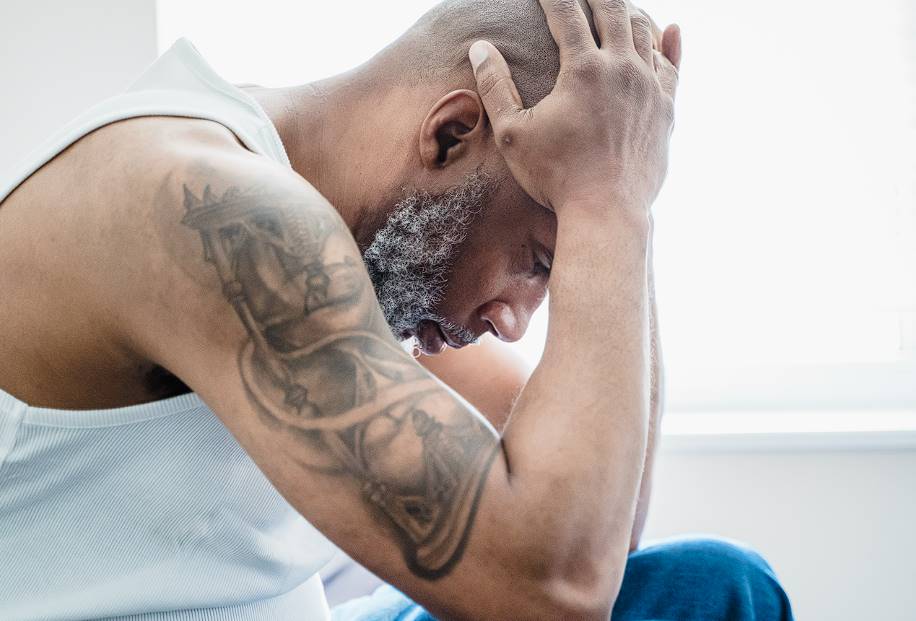Active addicts are experts at lies, excuses, and other ways to avoid taking responsibility. Anyone with an addiction problem will likely find many reasons not to go to rehab.
In reality, one in twenty Australians has a problem with addiction or substance abuse, and one in five has had a mental disorder in the past year. Still, only a few of these people will ever ask for help.
So, how can we start to change these shocking numbers and help people with addiction problems get their lives back? As a first step, we need to find out why people who need addiction treatment don't get it, and then, we need to explain how the type and level of treatment programme can greatly increase their chances of long-term success.
Excuses Commonly Used For Not Going To Rehab
The trip to a treatment centre is many people's first step towards recovery. But the hardest part can be taking that first step. If you ask, "Do I need to go to rehab?" or tell yourself, "I don't want to go to rehab," you may have a list of factors not to go.
You might have good reasons for not going to rehab. But there are many ways to get past them, and see that inpatient or outpatient treatment is your best choice.
These are some of the most common reasons people give when they want to avoid going to drug rehab.
They Think They Don't Have a Problem.
The most common reason addicts don't go to rehab is that they don't believe they are addicted. People have different levels of addiction, and some can be functional substance abusers for months at a time. Most people who abuse drugs or alcohol try to hide their problems.
You'll hear them say things like, "I can stop whenever I want," "I'm just doing this for fun," or "I don't do it as much anymore, so I'm not addicted." But their family and friends will immediately notice that they are having trouble, and eventually, the addict's life will fall apart.

Feeling That Nobody Cares
People with trouble may feel like no one cares about themselves anymore. They may have burned many bridges, putting them in a place where they don't have many friends. When it comes to going to rehab, not having family or additional help can feel like a big problem. Because of this, both our community and our staff are here to help.
We'll help you fix issues while getting help for your addiction. You can also make new friends in rehab with people who want to stay sober for the long term, as you do.
Feeling They Can Do It on Their Own
It is how to be independent and take care of yourself. It's often seen as a good thing to handle problems and struggles alone. But at the same time, it's also brave and admirable to know when you are in need and to ask for it.
If you've tried to quit using substances or alcohol on your own more than once, now might be the best time to take the help that's being offered. Getting help from a medical professional can help you deal with your addiction.
Shame
People who are having trouble may feel embarrassed about going to rehab. It can be hard to deal with how bad you feel. Shame can make people feel like they are not good enough to get help. Getting help is a brave first step if you need help with an addiction. It takes a strong person to admit they are addicted and need help. You don't have to let your past determine your future.
It's Not Bad Enough
Say you find a lump on your arm that wasn't there before. You go to a skin expert to have it checked out. Then imagine the doctor saying, "It could be cancer, but it's too early to tell. We can cut it off just in case or wait and see if it changes." You'd want that mole removed. Most people agree that it needs to go if there is a slight possibility that it could be cancerous.
But we don't have the same attitude of preventing problems and taking action related to our mental well-being or addiction.
When stress, addiction, or mental health problems keep us from doing our best, every part of our lives suffers. Our abilities at home, work, and relationships all go down. No matter how bad the problem is, the best thing to do is to get help as soon as possible.
Rehab Is Expensive
There are costs to going to a treatment centre where you live there. You'll have to pay for the treatment and your room and board at the treatment centre. But it's also expensive to pay for drug use. There's the cost of drugs or alcohol, and then there's the cost to society, like losing your job or your kids.
If you have health insurance, remember that your insurance company may cover some treatment for substance use disorder. Even if your insurance doesn't cover the full cost of your care, you can expect it to pay at least some of the bills.
They Think They Are Always Needed
People who use drugs are also part of society and have friends and family. Functional addicts who still have jobs often say that they have people who depend on them. But they often lose sight of the big picture and don't realise that if they don't treat their addiction, they could end up there in the long run.
Time Conflict
Treatment and recovery do take time; that much is true. If you want help with an addiction, you have to be willing to go to treatment sessions. Your main worry might be that you won't be able to find time for treatment.
Not Knowing Where to Get Help
Finding a rehab centre with addiction treatment programmes that fit your needs can be hard. Because there are so many choices and sources for details to sort through, some people give up and keep using drugs.
Rehab Doesn't Work
You may have heard about people with substance use disorders who go in and out of treatment. The mainstream press likes to tell interesting stories about famous people struggling with drugs. Or, you might have friends or family members who went to a treatment centre but relapsed months or years later.
Merely because someone else had trouble with relapse doesn't mean you will too. Also, it's important to remember that relapsing after treatment doesn't mean you failed or that the treatment didn't work. It just means that you should try again. It's better to get help now than to wait because you're afraid it won't work.
Having Relapse
Addicts trying to get clean and those who keep relapsing will always use these reasons not to go to rehab. In reality, there are a lot of reasons why treatments might not work. The treatment plan wasn't always the best one for you.
Addicts can give up all the coping skills and life advice they acquired during rehab and return to their old habits. Getting over an addiction takes more than just one treatment. It's an effort that never stops when people in recovery get comfortable enough to start using again.
Getting off the High Seems Impossible
People who can't stop getting high might not want to go to rehab. Some people are so caught up in the high that they can't imagine life without it. But these people will still have to deal with the effects of their addiction.
Mental as well as physical health will keep getting worse. Getting help for an addiction is an investment with a long-term return. There are many good reasons to be strong enough to give up the high. You will thank yourself in the future.

Why Going To Rehab Is The Key To Overcoming Addiction
You can concentrate on improving and overcoming your addiction when you go to rehab. You'll learn how to deal with things healthily in an environment without triggers. You can get to the bottom of your addiction and deal with it directly. You'll learn skills that will help you avoid temptations even after leaving our programme.
When it comes to getting help for addiction, going to rehab has a lot of benefits.
Why Rehab Works for Addiction in Patients and Friends
If you or somebody you care about is showing signs of addiction, there are plenty of reasons to join a high-quality inpatient rehab centre.
- Safety: It is safer to detox and withdraw from drugs in a facility where medical help and guidance are always available than doing it alone.
- Support network: Even though family is important for recovery, patients often form close bonds with other citizens, who can help them in ways that family can't.
- Individualised support: Inpatient support programmes often include a mix of intensive one-on-one counselling, treatment for both a mental illness and a substance use disorder, trauma resolution, therapy for families, and small-group therapy sessions that are designed to meet the needs of each person.
- Reduce chances of relapse: Patients will have a better chance of success and are less likely to relapse if they recover under strict supervision and care. This will also help them live a more fulfilling life after recovering from addiction.
- Routine: Rehab centres try to get their patients to stick to a daily schedule that helps them develop healthy habits. It can be hard to make such a routine when attending outpatient treatment regularly.
In conclusion, there are many reasons why people don't get treatment, some more important than others. Most of these reasons can be overcome with the right knowledge and perspective about quality addiction care. With the help of competent employees and therapists, advanced therapy methods and instruments, compassionate and complete care, and an environment that helps to heal, it is possible to get sober and free from addiction for good.
Conclusion
Active addicts are adept at lying and avoiding responsibility, making it difficult for many people to seek help for addiction or substance abuse. In Australia, one in twenty people has a problem with addiction or substance abuse, and one in five has a mental disorder in the past year.
However, only a small percentage of these people ever ask for help. To change this, it is crucial to understand why people need addiction treatment and how the type and level of treatment program can significantly increase their chances of long-term success.
Some common reasons people avoid going to rehab include believing they don't have a problem, feeling that nobody cares, feeling that they can handle problems on their own, feeling ashamed, not being good enough to get help, not being good enough to admit their addiction, not being good enough to get help, not being good enough to be treated, not being good enough to be treated, not being good enough to be treated, and not being good enough to be treated.
Rehab is expensive, with costs for treatment, room and board, and drug use. If you have health insurance, it may cover some treatment for substance use disorder, but it is essential to consider the costs and the potential benefits of seeking help. By understanding the reasons behind not going to rehab and implementing a treatment program that addresses these factors, we can help people with addiction problems get their lives back and improve their overall well-being.
Many people who use drugs are part of society and have friends and family who depend on them. However, they often lose sight of the long-term consequences of not treating their addiction. Time conflicts, finding a rehab center with appropriate addiction treatment programs, and not knowing where to get help can be challenges. Relapses after treatment don't necessarily mean failure or ineffectiveness; it's better to get help now than wait.
People who can't stop getting high may not want to go to rehab, but it's essential to deal with the effects of their addiction. Getting help for an addiction is an investment with a long-term return, and there are many good reasons to be strong enough to give up the high.
Going to rehab is the key to overcoming addiction. It allows individuals to focus on improving and overcoming their addiction in a healthy environment without triggers. Inpatient rehab centers offer safety, support networks, personalized support, reduced chances of relapse, and a daily schedule that helps develop healthy habits.
Overall, many reasons why people don't get treatment can be overcome with the right knowledge and perspective about quality addiction care. With the help of competent employees, advanced therapy methods, compassionate care, and an environment that helps heal, it is possible to get sober and free from addiction for good.
Content Summary
- Active addicts excel in deception, excuses, and evading responsibility.
- Addiction sufferers often concoct numerous excuses to avoid rehab.
- About one in twenty Australians grapple with addiction or substance misuse.
- One in five Australians experienced a mental disorder in the past year.
- The majority of those in need never seek help for their addiction.
- Initiating change in these alarming statistics is crucial.
- Understanding the barriers to addiction treatment is the first step.
- Tailored treatment programs can significantly enhance long-term success.
- Taking that initial step towards recovery can be daunting.
- Overcoming personal factors can lead to choosing rehab.
- Common reasons for avoiding rehab can be surmounted.
- Some addicts deny having an addiction issue.
- Substance abusers often try to conceal their problems.
- The addict's life eventually unravels despite denial.
- A feeling of isolation can deter individuals from rehab.
- Community and staff support are pivotal in these cases.
- Self-reliance can hinder seeking help for addiction.
- Recognising the need for assistance is courageous.
- Professional guidance aids in dealing with addiction.
- Shame can impede seeking help for addiction.
- Seeking help for addiction is a brave step forward.
- Perceiving the problem as not severe enough can be misguided.
- Timely intervention is crucial for mental well-being and addiction.
- Rehab costs may deter some, but addiction's costs are higher.
- Health insurance can alleviate some treatment expenses.
- Addicts often feel indispensable to others.
- Time commitments can discourage seeking treatment.
- Finding the right rehab can be challenging due to numerous options.
- Doubts about rehab effectiveness can stem from misconceptions.
- Relapse doesn't equate to failure; another attempt is valid.
- The reasons to avoid rehab are familiar to those battling relapse.
- Effective treatment plans are key to recovery success.
- Returning to old habits can erode progress.
- Addiction treatment is an investment in long-term well-being.
- Rehab offers a controlled environment for recovery.
- Overcoming addiction is attainable with rehab.
- Inpatient rehab ensures safer detox and support.
- Building a support network within rehab is invaluable.
- Personalised care and therapy aid recovery.
- Inpatient rehab reduces relapse risks and improves life post-recovery.
- Structured routines foster healthy habits in rehab.
- Numerous reasons may deter treatment, but all can be tackled.
- Quality addiction care, guided by experts, can surmount obstacles.
- Skilled therapists, advanced techniques, and compassion are vital.
- Comprehensive care and a healing environment foster sobriety.
- The potential for permanent recovery from addiction is real.
- The content highlights the importance of seeking rehab.
- This information underscores the merits of inpatient rehab.
- Effective support and tailored care are central to recovery.
- The journey to sobriety is achievable through expert-guided rehab.
Frequently Asked Questions
Rehabilitation is "a set of interventions designed to improve a person's ability to function and lessen their disability as they interact with their environment."
Try as hard as possible to discover what the patient would have wanted if they could still talk. Talk to the patient's next of kin and general practitioner. Any treatment preferences written down before the patient loses the ability to make decisions must be honoured.
The Recovery Stage
The Recovery Stage is the first part of physical rehabilitation. This is the most important part of the treatment process, and it can also take the longest, depending on how bad your injuries are. The goal of this first stage is easy to understand: to rest and let your body start to heal.
People often say that rehab's most physically hard part is the detox process. The withdrawal process can cause uncomfortable and dangerous physical and mental symptoms, such as shakiness, nausea, irregular heartbeat, anxiety, depressive mood swings, and trouble sleeping.
Rehabilitation is meant to help people get back, keep, or get better at the skills they need for daily life. The kind of care a person needs depends on what they need and what kind of illness or addiction they have. It can affect the body, mind, or thoughts.




















